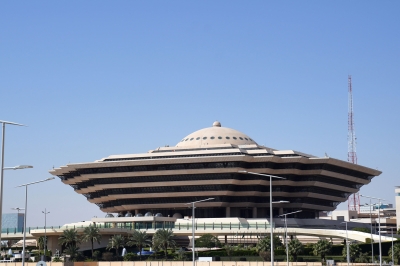
General Secretariat of Zakat, Tax, and Customs Committees
The General Secretariat of Zakat, Tax, and Customs Committees is an independent entity established on September 12, 2021, by a decision of the Zakat, Tax, and Customs Authority in the Kingdom of Saudi Arabia. This entity resulted from the merger of the General Secretariat of Customs Committees and the General Secretariat of Tax Committees, adopting its current name and undertaking various tasks focused on managing disputes related to zakat, tax, and customs. It operates according to unified regulatory, technical, and administrative procedures to contribute to the preservation of both private and public rights. Its headquarters is located in Riyadh City.
Objectives of the General Secretariat of Zakat, Tax, and Customs Committees
Through its assigned tasks, the secretariat aims to manage and resolve disputes related to zakat, customs, and tax, ensuring compliance with regulations to protect both private and public rights.
Tasks of the General Secretariat of Zakat, Tax, and Customs Committees
The secretariat undertakes various tasks, including supervising the procedures for handling claims, preparing and exchanging memoranda, analyzing and studying claims, and providing administrative and legal support to the committees before and during sessions. It also drafts committee decision drafts in accordance with laws, participates in studies related to relevant laws and regulations, and conducts accounting, legal, and technical studies, research, and consultations. Additionally, it extracts judicial principles from committee decisions to harmonize the issued decisions and minimize discrepancies between them, and contributes to classifying decisions before their publication.
The secretariat monitors performance indicators related to the committees, prepares annual statistics on the committees' activities, decisions, and litigation durations, and raises awareness among stakeholders and related parties about the laws concerning zakat, tax, and customs. It also clarifies the mechanism for submitting dispute claims arising therefrom.
Tax and Zakat committees
The Tax Committee for Resolution of Tax Violations and Disputes and the Appeal Committee for Tax Violations and Disputes were established on July 25, 2017. The former specializes in adjudicating tax violations and disputes arising from the application of tax laws, regulations, and the instructions and decisions issued according to them, as well as adjudicating objections of the concerned parties to the decisions issued by the authority. The Appeal Committee of Tax Violations and Disputes is responsible for resolving: objections against decisions by the Committee for Resolution of Tax Violations and Disputes.
The Committee for Resolution of Customs Violations and Disputes operates within its jurisdiction over customs smuggling crimes and violations mentioned in the Customs Law, its Explanatory Memorandum, and its Implementing Regulations. It also handles objections to the authority's collection decisions and objections to issued customs fines. The Appeal Committee for Resolution of Customs Violations and Disputes is responsible for handling objections against the decisions made by the first instance committee.
Electronic services of the General Secretariat of Zakat, Tax, and Customs Committees
The secretariat provides several services through its eServices Gate, including filing claims, inquiring about them, adding an agent, and exchanging memoranda. It also allows beneficiaries to extend the response period, withdraw claims, and select or modify session dates.
Through the eServices Gate, users can request to reschedule a session, change the session type to remote litigation, view and amend the session minutes, and receive decisions. Additionally, the gate allows users to request appeals, file objections, and petition for a review of a default judgment. It also provides a survey to measure beneficiary satisfaction before and after a decision.
The eServices Gate integrates with the Eirad system (Zakat, Tax, and Customs Authority), the National Address (Saudi Post), the Commercial Register (Ministry of Commerce), and Najiz system (Ministry of Justice). Additionally, data of individuals is verified through the National Information Center.
Related quizzes

